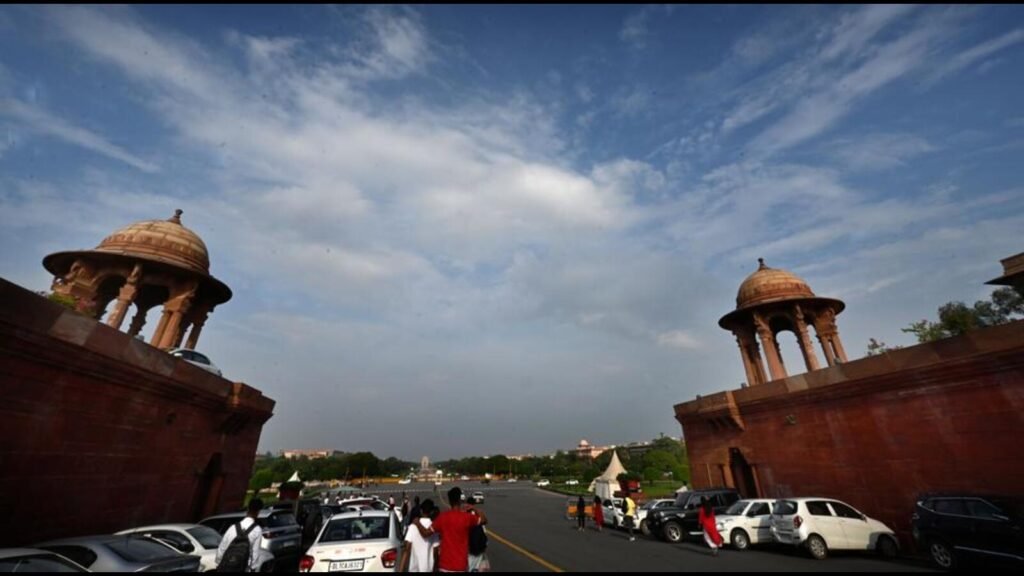NEW DELHI: The government has asked e-commerce platforms to voluntarily join the Sahyog portal, a platform operated by the Indian Cybercrime Coordination Centre (I4C) under the Ministry of Home Affairs (MHA), as part of its efforts to streamline coordination on cybercrime-related issues.
A senior I4C official, who requested anonymity, said companies such as Amazon, Flipkart, and Myntra are among those being considered for integration with the portal.
The Department for Promotion of Industry and Internal Trade (DPIIT), the nodal agency under the commerce ministry for industrial and trade policy, sent out a communication dated August 4 to e-commerce firms, inviting them to register on the portal voluntarily, people familiar with the matter said.
I4C sent a similar letter on July 29, 2025.
The Sahyog portal was launched in 2024 to fast-track sending notices to IT intermediaries by designated government agencies under Section 79(3)(b) of the IT Act for removal of any information, data or communication link being used to commit an unlawful act. According to MHA, the portal brings all authorised agencies and all the IT intermediaries under one platform to ensure immediate action against unlawful online content.
The government has revealed in proceedings before the Karnataka high court that 38 intermediaries including Google, Microsoft, Amazon and Telegram have joined the portal. To be sure, ‘Amazon’ here specifically refers to its cloud division Amazon Web Services (AWS), and not the e-commerce platform.
X, the most prominent holdout, had approached the high court challenging the government’s directive mandating all social media platforms join the Sahyog portal.
Industry experts said there was hesitation within the e-commerce sector too, with concerns about whether onboarding would subject them to the same compliance framework as other intermediaries already integrated into the system.
“E-commerce Marketplaces in India depend on their sellers to provide information and details, and owing to FDI (foreign direct investment) laws, they cannot check the information for veracity or change the information on their own. Hence, it would be necessary to clarify whether the guidance would be applicable to them. Though it could increase compliance cost for quick commerce players,” said an industry expert requesting anonymity.
Dedipyaman Shukla, associate director at Indian Governance and Policy Project (IGAP), said the government’s move reflects the growing importance of digital marketplaces in user safety.
“It should be noted that there can often be overlap between intermediaries and e-commerce platforms on a case-by-case basis, as the definition of ‘intermediary’ includes online marketplaces. Platforms like Facebook and Buyhatke, which have an e-commerce aspect, are already involved in integration with the Sahyog portal as per proceedings before the Delhi High Court in April this year, so there is also some precedent for this expansion beyond social media platforms and virtual digital asset service providers,” said Shukla.
He said the voluntary nature of this inclusion might create some future complications. “For platforms not amounting to intermediaries, the extent and kinds of notices which may be sent through Sahyog is as yet unclear. So far, appropriate government authorities have heavily relied on their powers under Section 79(3)(b) of the IT Act (applicable only to intermediaries) for issuing notices on the portal,” he said.
In proceedings before the high court, X has argued that the government was using the platform to enforce unlawful takedown requests and expand its control over online speech, a claim the government has denied.
X has also reasoned that the takedown notices issued through the portal bypassed the statutory framework of Section 69A of the Act, which includes procedural safeguards underlined in the Supreme Court verdict in Shreya Singhal vs Union of India, which Section 79(3)(b) lacked.
Meta is currently testing an API-based integration as part of its onboarding process, As reported by HT earlier, more than 45 cryptocurrency exchanges joined the portal as of June 2025.

